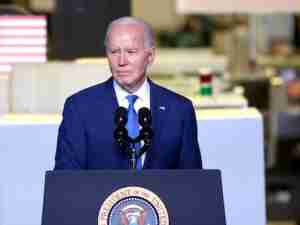The green light for the tax accord comes just as the White House gears up to ask Congress to ratify a trade deal with Colombia after Panama's South American neighbor agreed to address labor concerns raised by some U.S. lawmakers.
"This is key," said Panamanian lawmaker Miguel Fanovich, a member of conservative President Ricardo Martinelli's coalition that controls the one-chamber legislature.
"It complies with one of the important requirements the United States is demanding in order to sign this pact."
The trade deal would likely boost U.S. investment in the small Central American nation and phase out or immediately eliminate tariffs on many U.S. food products for import-dependent Panama.
It also marks a historic shift under Martinelli in long-standing Panamanian policy to protect banking secrecy.
Martinelli is expected to ratify the tax accord quickly and call for its quick implementation, said Fanovich.
U.S. Trade Representative Ron Kirk, speaking in Washington shortly before Panama approved the tax treaty, also praised the country for recent changes it had made to its labor law to address U.S. concerns.
"We're in a great position now to go Congress and come up with a work plan to move these free trade agreements through Congress," Kirk said, referring to the two Latin American deals and another with South Korea that have been held up for years.
Panamanian opposition Democratic Revolutionary Party lawmakers voted against the deal arguing that it is retroactive three years.
The Martinelli administration hopes the U.S. tax deal and double taxation accords with other nations will also secure Panama's removal from an OECD list of tax havens, opening it up to investors who had avoided countries on the register.
"Before, it was thought that it would affect our sovereignty," said Fanovich of the agreement, adding that it would cost Panama more in the long-term to not shed the tax haven stigma. "There is going to be more transparency in the money that enters the national banking system." (Reuters)








